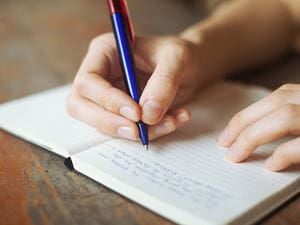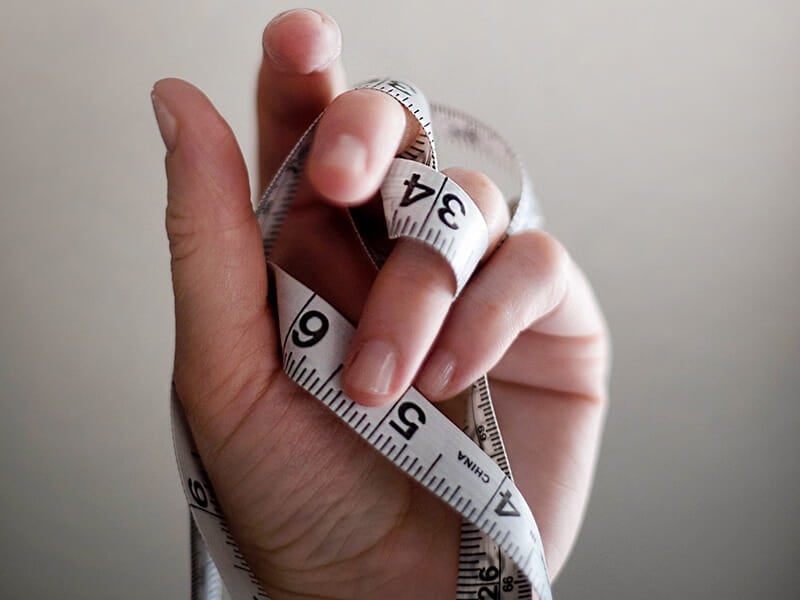
The act of writing and journaling has been used for years by people who are seeking comfort. This medium is an outlet for thoughts, desires, and a way to vent our deepest secrets, and sometimes treasures. We can also use writing as a way to relax and to explore emotions we felt during trials or achievements. There are many health benefits to writing, and especially for losing weight.
Counting words more than calories could be the way for you to go. No kidding! Newsweek found the woman who was getting the “word” out on how jotting down thoughts and expressing oneself is key to losing weight. Julia Cameron authored the book, The Artist’s Way, which shared how people can put their pens to good use. She explained that writing stabilizes our moods, and is cathartic--this can help us slim down. It makes sense dieter, truly. By recording your frustrations, you can find the triggers, and catch yourself every time you want or feel the need to binge. For example, if you had a hard day--you may want to eat a gallon of ice-cream in between crying! We’ve all been there, so there is no shame. However, in this situation you could go to a notebook and let it all out. This will calm you, first, as well as keeping you from overeating. It is not far-fetched and it can be a great intervening measure to use. This is a lot cheaper than some of the expensive commercial diets out there, like South Beach, and others, were you need to buy prepackaged meals. Additionally, researchers found that people who log about their struggles, and goals, lose more weight during a six month period, compared to those people who did not. Kaiser Permanente's Center for Health Research found that weight loss almost doubled when people wrote in a food journal. “Those who kept daily food records lost twice as much weight as those who kept no records. It seems that the simple act of writing down what you eat encourages people to consume fewer calories." If you tried everything to lose pounds, try these 8 ideas on how writing can become an essential part of your weight-loss journey.
Start writing in the morning.
A journal entry in the morning will allow you to get your thoughts out and help clear the mind. This is the best way to start the day off fresh, and without carrying the negatives in from the day before. Once you complete this, you can start recording what the goals are for the day. Let’s say that you want to keep your breakfast to 400 calories. Jot this down and you will be even more aware of what you are putting on the breakfast plate.
It keeps you honest.
Anyone who journals can go back and review missteps and weaknesses. It is like looking into a mirror where you can see and make the necessary adjustments. This will help identify areas where you are overdoing the calories in a certain area. For example, a morning latte could add up to 300 calories, and if this morning treat is a common practice, it could sabotage weight-loss goals over the long haul. Just like in or personal lives, recording our actions and looking at them on paper helps us make positive changes.
Writing makes you more aware of emotions.
Keeping a food journal will increase the awareness of how much munching and other snacking you are doing. Be clear on the intent, details, and what triggers cravings. Recording these thoughts will help you to go back to see what triggers your snacking habits. It could be linked to your varying emotions at the time.
What are the temptations?
Learning about what tempts you can help you avoid making the same mistakes over again. If having sweets is your downfall than list the times of day that this tempted you and where it happened. Sometimes certain places can trigger cravings. Maybe when you go food shopping there is a bad habit of buying too much junk food. Whatever, it may be, make notes of it. You can then check to see the rationalization behind buying those donuts, or cookies.
It does not need to be fancy.
Writing does not need to be formal. Look at it as just a process in order to become more fully aware of your struggles, and to correct what may be wrong. If you have the tools and the right support, along with food journaling—it can be a success. If you view it through a lens of it having to be perfect, you might never get to it. You don’t need an online program, or anything else. If you have a pen and pad, you can start.
Remain committed.
Everyone gets busy, but aim to record your experiences at least five days a week, or set time during or at the end of the day to write. Doing it right after you eat would be more beneficial as you will remember it more vividly.
Embrace mistakes.
Sorry, you are human and you will slip up during any given diet. Yes, there will be obstacles, but getting back is more important than your mistakes. Trying to be perfect is not the issue. It is acknowledging what happened and rectifying it as you keep moving forward. Like with any new habit, writing included, it takes a good 30 days to develop a habit. Remember how useful the tool can be for your progress, and get refocused.
It will be shocking.
Many people are shocked to realize how many calories they take in on a given day. It is the small things like sugary drinks, fat, salt, or portion sizes that will impact a waistline. When you record everything you eat, you may find your culprit, and make the necessary changes needed.
Dieting is never easy, but that is OK. What is important to remember is that obstacles can’t be overcome unless you give up. By keeping a food diary, and writing down your thoughts, this can be a new journey towards your ideal weight loss.

